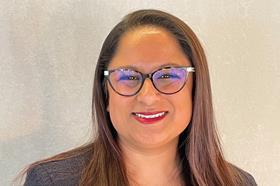When it comes to disability inclusion, sometimes there can be a tendency to focus on events and awareness raising. In fact, disability and neuro-inclusion will require a critical assessment of literally everything - policies, procedures, processes, systems. Awareness raising on its own is not enough; it needs to be coupled with tangible action in order for employees to feel like an organisation is invested in them and their experience of the world around them.

For this to work, leadership needs to actively support a disability inclusion strategy (which may form part of a broader diversity and inclusion strategy) by ensuring key stakeholders are empowered through appropriate funding and resource to drive positive and inclusive change. Often, the 'heavy lifting' on inclusion is done by network leaders outside of working hours, but the implementation and maintenance of a disability inclusion strategy is not the responsibility of network leaders.
In the past, organisations might have side-lined disability inclusion, on the basis that it was just too hard to tackle. However, it was apparent to the Law Society and its Disabled Solicitors Network (DSN) that there were some simple steps that firms and in-house teams could take to make a positive change and improve disability inclusion. Again working with Cardiff University (as on the groundbreaking Legally Disabled? research), they formulated an easy wins and action points for disability inclusion document - which sets out some easy wins, questions to get discussions going or starting points for further work, with separate recommendations for larger and smaller organisations. This provides a useful framework to get the conversation about disability and neurodiversity inclusion started.
Organisations also need to listen to the lived experience of their disabled and/or neurodivergent employees to find out what is and isn’t working for them. Employee disability networks are a great place to start; engage with them, seek their input to inform decision making and listen carefully to what they have to say. The phrase 'nothing about us without us' sums this up.
I would like to see organisations investing in building up the disability and neurodiversity confidence of line managers and supervisors. They will often be the first point of contact for a disabled or neurodivergent employee that is struggling, and that can be critical in shaping an employee’s experience, so it is important to empower those managers to be supportive and empathetic.
Workplace adjustments can also transform an employee's experience, and this is an area that organisations often get wrong. Employees should be able to access workplace adjustments quickly and easily, without the need for individuals to project manage the process themselves or obtain multiple layers of internal approvals. Our best practice guide to reasonable adjustments is a good starting point for organisations seeking to improve their processes and approach to workplace adjustments, as it contains real examples from a range of organisations. External audits and reviews can also be helpful in identifying areas for improvement.
Organisations sometimes focus on the recruitment of disabled or neurodivergent talent, but they do not invest in the retention and progression of that talent, and this needs to change because there is a distinct lack of disabled and neurodivergent senior leaders in the legal profession. We want disabled and neurodivergent students to enter the profession, and to bring with them their wealth of talents, strengths, and diversity of thought; but if they don’t see senior members of the profession that they can identify with and emulate, the legal profession is in danger of missing out on that fantastic talent pool.
Law has traditionally been a rigid profession in terms of working practices and career pathways, and that may have put some diverse candidates off from pursuing a legal career. But the pandemic introduced different models of working, including hybrid and flexible working, and I think that this is positive in terms of the retention of diverse talent (including disabled talent) within the profession. In this respect, I would like to highlight Project Rise, which is a DSN/Law Society and cross-law firm/in-house legal team initiative to introduce flexible training. The project is not exclusively designed to benefit disabled trainees; there are many people from diverse backgrounds who would benefit from having the option of completing their training contract in a flexible way, including those with caring responsibilities. The apprenticeship model also offers an alternative pathway to the traditional route to qualification, which I hope will open up the profession to a more diverse pool of talent, including disabled and neurodivergent lawyers.
Reena Parmar is counsel at Freshfields Bruckhaus Deringer and chair of the Law Society’s Disabled Solicitors Network
- To listen to The Legal Mind Podcast with Reena Parmar click here.































1 Reader's comment